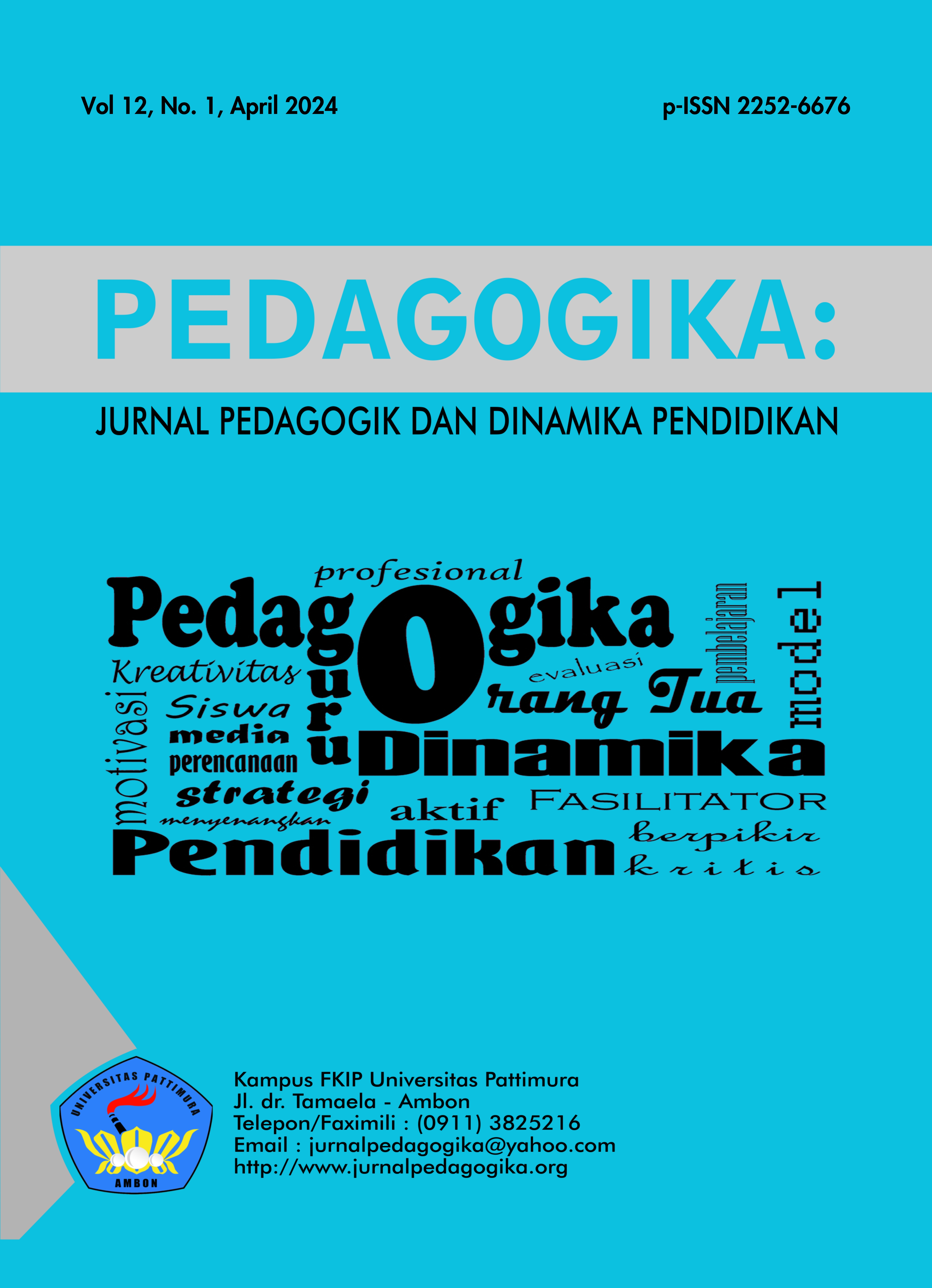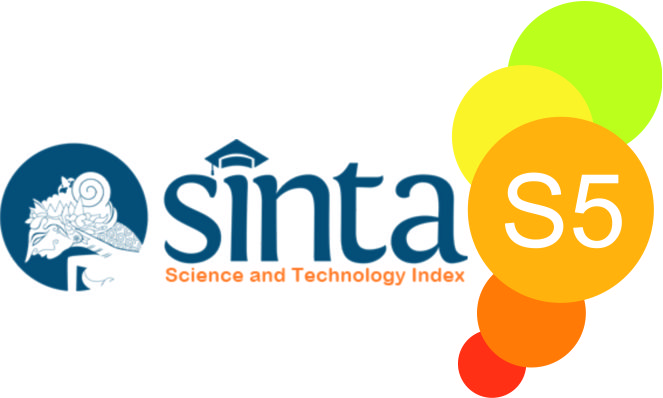PERAN GURU DALAM PELAKSANAAN PEMBELAJARAN IPAS MELALUI IMPLEMENTASI KURIKULUM MERDEKA DI SD NEGERI 01 NAMROLE
Abstract
The curriculum functions to regulate and serve as a guide for teachers, as well as efforts to realize educational goals. The emergence of a new curriculum, namely the independent learning curriculum. One implementation is that science and social studies subjects are combined into one under the name IPAS. This is based on the fact that elementary school age children see everything in an integrated manner, even though not in detail.
This research uses a qualitative approach with descriptive research type. The research subjects were school principals, science and science teachers for classes IA, IB and IVA, IVB. Data collection was carried out by observation, interviews and documentation. The data analysis techniques are carried out by data reduction, data presentation, and drawing conclusions.
The results of the research show that: First, at SD Negeri 01 Namrole, the Independent Curriculum has been implemented by implementing project-based learning, diagnostic, formative and summative assessments, subject-based learning, science, report cards, ATP and Teaching Modules carried out in groups. Second, the role of teachers in implementing the Independent Curriculum. There are 13 teacher roles, namely corrector, inspirer, informator, organizer, motivator, initiator, facilitator, guide, demonstrator, class manager, mediator, supervisor and evaluator. in planning, implementing and assessing learning are difficulties in analyzing CP, formulating TP and compiling ATP and Teaching Modules, determining learning methods and strategies, lack of ability to use technology, limited student books, lack of ability and readiness to use learning methods and media, teaching materials are too broad , determining class I and IV projects, lack of time allocation for project-based learning, determining the form of assessment and form of assessment in project-based learning. Third, the efforts applied by teachers in overcoming problems in implementing the Independent Learning Curriculum are regular meetings with KKG, PMO assistance and specifically coaching school principals, using alphabet books, writing on the board, typing, making worksheets, and creating formats for their own projects, continuing the project. at home, make notes, and take part in training to implement the Merdeka Curriculum.
Downloads
References
Angga, A., Suryana, C., Nurwahidah, I., Hernawan, A. H., & Prihantini, P. (2022). Komparasi Implementasi Kurikulum 2013 dan Kurikulum Merdeka di Sekolah Dasar Kabupaten Garut. Jurnal Basicedu, 6(4), 5877–5889. https://doi.org/10.31004/basicedu.v6i4.3149
Fahrian Firdaus Syafi’i. (2021). Merdeka Belajar: Sekolah Penggerak. 44
Farida Jaya. (2019). Perencanaan Pembelajaran. Fakultas tarbiyah dan Keguruan
Jenny Indrastoeti, dan S. I. (2017). Asesmen dan Evaluasi Pembelajaran di Sekolah Dasar. UNS Press
Mulyasa. (2021). Menjadi Guru Penggerak Merdeka Belajar. PT Bumi Aksara
Nana Syaodih Sukmadinata. (2011). Metode Penelitian Pendidikan. Bandung: PT Remaja Rosdakarya.
Nation, I.S.P. & Macalister, J. 2010. Language Curriculum and Design. New York: Taylor and Francis Group
Rahmadayanti, D., & Hartoyo, A. (2022). Potret Kurikulum Merdeka, Wujud Merdeka Belajar di Sekolah Dasar. Jurnal Basicedu, 6(4), 7174–7187. https://doi.org/10.31004/basicedu.v6i4.3431
Sugiono 2015. Metode penelitian pendidikan (pendekatan kuantitatif, kualitatif dan R & D). Bandung: Alfa Bata
Undang-Undang No. 20, Pasal 1, Ayat 1, Sistem Pendidikan Nasional, Tahun 2003
Copyright (c) 2024 PEDAGOGIKA: Jurnal Pedagogik dan Dinamika Pendidikan

This work is licensed under a Creative Commons Attribution-NonCommercial-ShareAlike 4.0 International License.









 This work is licensed under
This work is licensed under 